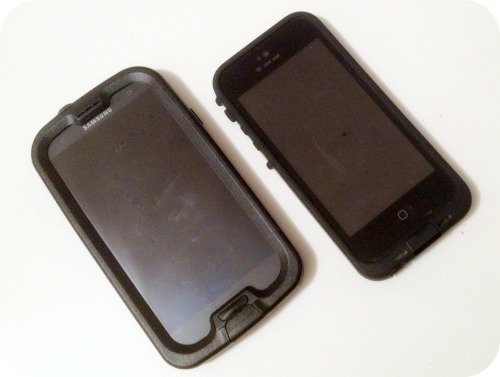We like technology in this house.
A lot.
And The Boy is incredibly adept at using the technology that we have, in fact he's the one who has shown me various shortcuts on the iPad. No matter what the device is, he seems to be capable of picking it up and using it instantly. Interestingly I recently attended a conference about the impact of iPads in the classroom and how they affect learning, the survey of parents conducted demonstrated that they believe tablets are intuitive and that children don't need to be taught how to use them. The Boy's practise would indicate that to be an accurate assumption.
The conference also highlighted that most parents (75%) see it as essential for children to have access to tablets like touch-screen mobile devices in order to keep abreast of technological developments and to aid their learning, which I found really interesting and also reassuring that their learning potential (not just their play functions) were being acknowledged. A recent survey by Lifeproof (award-winning maker of all-protective, everyday cases for smartphones and tablets) showed that seven in ten parents feel their children are brighter because of early exposure to technology, and while four in ten parents admit that they sometimes use their smartphone or tablet as a high-tech babysitter to keep their children entertained, nine in ten also believe that using gadgets can be educational for their children.
Now I will put my hand on my heart here and 'fess up that I have been in the supermarket and handed The Boy my phone or the Kurio tablet (which has a rubberised drop-proof case as standard) to keep him amused while I'm shopping. Possible letting him play with my expensive smartphone might not be the best way to keep it in one piece, but then he's not the one who dropped it on the road, shattering the gorilla glass screen of the Samsung Galaxy S3, I was.
That's why I was incredibly grateful when Lifeproof sent me one of their cases for my phone, my husband has already reviewed one for the iPhone 5 earlier in the year, and it was probably just as well mine arrived when it did as I dropped it in sink of water last week…

Baroness Floella Benjamin, OBE commented on the research: "Gadgets are a part of everyday life and are here to stay – but should be used as part of a child's creative development along with other stimuli. There has been much written about the use of gadgets by children, and technology is becoming a vital part of everyday life – but of course, as with everything, should be used by children and teens in moderation.
"Children shouldn't be passive when it comes to technology, they need to be in touch with it, and learn to be creative and inventive, because ultimately there are many long-term benefits."
We tried restricting The Boy's access to the iPad and actually have found that it makes him crave it more, so we tend to let him have a little bit of iPad time for ten-twenty minutes every day or two, and he loves playing with the problem-solving and logic puzzles; reassuring as I know that these are areas that we are focusing on in school!
While we're lucky that The Boy hasn't damaged one of our devices, the average parent has spent £110 in the last year fixing gadgets, while two electrical devices have been broken by children in the last 12 months alone. The most common cause of damage is items being dropped in the house, while spillages and gadgets being lost were also seen as everyday occurrences.

For further information and to explore the full range of LifeProof cases visit their Kidproof page.
Posted in conjunction with Lifeproof for which I received a phone case.

